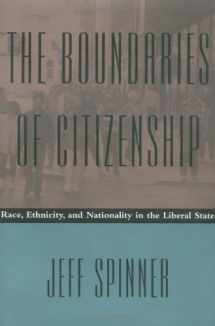
The Boundaries of Citizenship: Race, Ethnicity, and Nationality in the Liberal State
Book details
Summary
Description
Liberalism has traditionally been equated with protecting the rights of the individual. But how does this protection affect the cultural identity of these individuals? In The Boundaries of Citizenship Jeff Spinner addresses this question by examining distinctive racial, ethnic, and national groups whose identities may be transformed in liberal society.
Focusing on the Amish, Hasidic Jews, and African Americans in the United States and on the Quebecois in Canada, Spinner explores the paradox of how liberal values such as equality and individual autonomy―which members of cultural groups often fight to attain―can lead to the unexpected transformation of the group's identity. Spinner shows how liberalism fosters this transformation by encouraging the dispersal of the group's cultural practices throughout society. He examines why groups that reject the liberal values of equality and autonomy are the most successful at retaining their distinctive cultural identity. He finds, however, that these groups also fit―albeit uneasily―in the liberal state.
Spinner concludes that citizens are benefitted more than harmed by liberalism's tendency to alter cultural boundaries. The Boundaries of Citizenship is a timely look at how cultural identities are formed and transformed―and why the political implications of this process are so important. The book will be of interest to readers in a broad range of academic disciplines, including political science, law, history, sociology, and cultural studies.


We would LOVE it if you could help us and other readers by reviewing the book
Book review



